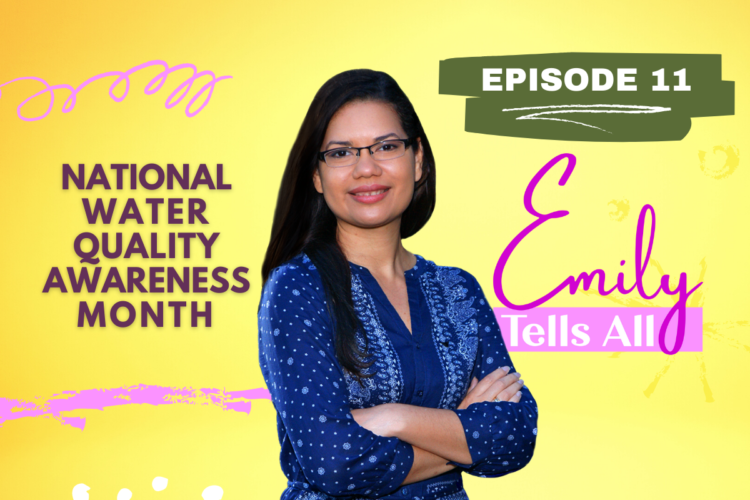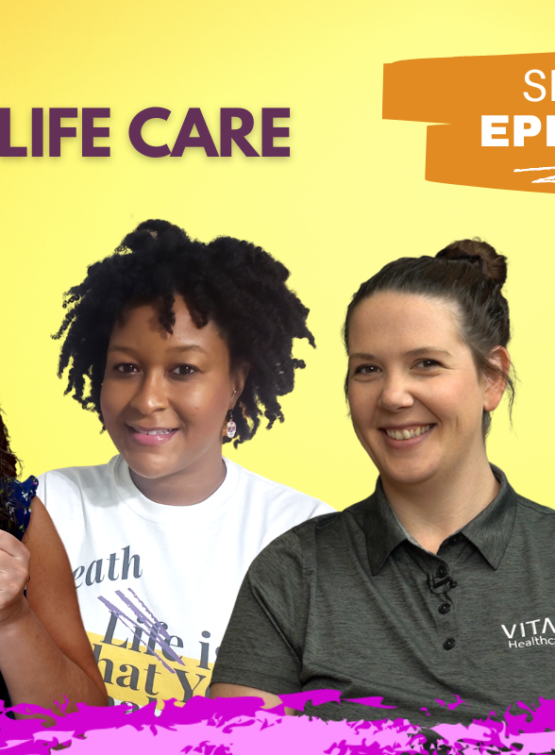AIR DATE AUGUST 12, 2021
Title: National Water Quality Awareness Month
In this episode of Emily Tells All, during National Water Quality Awareness Month, we are reminded that it takes all of us working together to keep our water clean. Emily talks to experts in the field about how they are ensuring the safety and quality of our water.
Guests and Locations
EcoSPEARS, Co-Founder and CEO, Sergie Albino
Orange County Government, Environmental Protection Division Public Information Officer – Denise Cochran
Together We Can Preserve the World’s Water Quality
There are a variety of ways in which our world’s water quality is compromised daily. From stormwater runoff that drags harmful chemicals and trash into our natural water resources to large companies openly draining toxic pollutants into our lakes and oceans, it is no wonder why the quality of our water is often called into question.
According to UNESCO, “Every day 2 million tons of sewage and other effluents drain into the world’s water.” This is preventable on a global scale. Furthermore, there are many steps we can take on the individual and organization level to filter and save our natural water resources from the damage that has been done.
I had the opportunity and pleasure to speak with Denise Cochran, a Public Information Officer for the Environmental Protection Division. Although she works for the Orange County Division, her prescribed ways to preserve water quality applies to communities worldwide.
During this episode of Emily Tells All, Denise offered essential and straightforward tips we should all follow as a way to preserve water quality across the planet:
Preserve Lake Vegetation
Lakes, oceans, and other natural water resources have unique vegetation that grows around them and act as filters. These natural filters prevent trash, chemicals, and other pollutants from entering and contaminating the waterways.
Individuals who live in a lakeside residence should be aware of and follow the set policies and regulations their county has established to protect lakes and shorelines. This means, while building on or altering the landscape of their property that is close to the lake, lakeside residents should obtain a permit and closely follow any prescribed directions.
Report Harmful Behavior
During our interview, Denise described the cases in which you may want to report someone regarding the preservation of water quality. For example, issues of “someone removing the vegetation” from the shoreline or even “dumping what appears to be a chemical” into the water should be reported (Cochran, Denise).
You can dial 311, the non-emergency number, to report this type of behavior, and this will prompt the appropriate local officials to investigate the situation. Being a bystander observing harmful behavior regarding water quality can be very detrimental to our efforts to preserve and restore our natural water resources.
Engage in Best Practices
As stated by Denise, “-everybody has a responsibility and opportunity to put litter where it belongs– into our trash cans.” Although throwing away trash into the appropriate containers is a no-brainer, there are some best practices that people do not often think about regarding the preservation and restoration of our water quality.
For example, trimming your trees and mowing your lawn, and then leaving the trimmings in your yard may seem like an innocent chore. However, those trimmings can flow into the storm drain runoffs resulting in nutrient pollution. That is, the vegetation clippings can over saturate the water with nutrients which can cause an imbalance in our natural water resources.
Similarly, using the wrong type of fertilizer or even using fertilizer at the wrong time can have a harmful impact on water quality. In fact, many communities across the nation have Fertilizer Management Ordinances to prevent toxic chemicals from entering the storm runoff systems and draining into our natural water resources.
You can learn more about how you can contribute to preserving and restoring our natural water systems by reaching out to your local Environmental Protection Agency.
Support Eco Organizations
During National Water Awareness Month, I also interviewed Sergie Albino, who is the CEO and co-founder of EcoSPEARS. Notably, EcoSPEARS is a company dedicated to “green and sustainable technology for a cleaner environment.” As reported by Sergie, they utilize NASA-licensed technology to restore water resources all around the world.
Reportedly, their EcoSPEARS have been utilized in Guam, San Diego, the District of Columbia (D.C.), and will soon even be in Sweden! This company utilizes plastic spears that are embedded into the sediment beds of lakes, oceans, and other natural water resources. The plastic paired with an internal alcohol solution absorbs harmful chemicals and other pollutants.
A great step to help preserve and restore the world’s water company is to support eco-friendly companies such as EcoSPEARS. For more information about EcoSPEARS and to receive information about your environmental liabilities, you can Reach Out Here. You may also support this innovative organization by following them on Instagram!
From reporting suspicious behaviors regarding natural water resources to holding yourself accountable for how you may be impacting the environment, there are various ways you can contribute to improving our world’s water quality. However, being mindful and making the effort is a significant first step to helping restore and preserve the natural resources on our planet.



